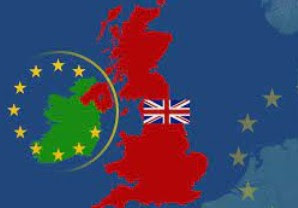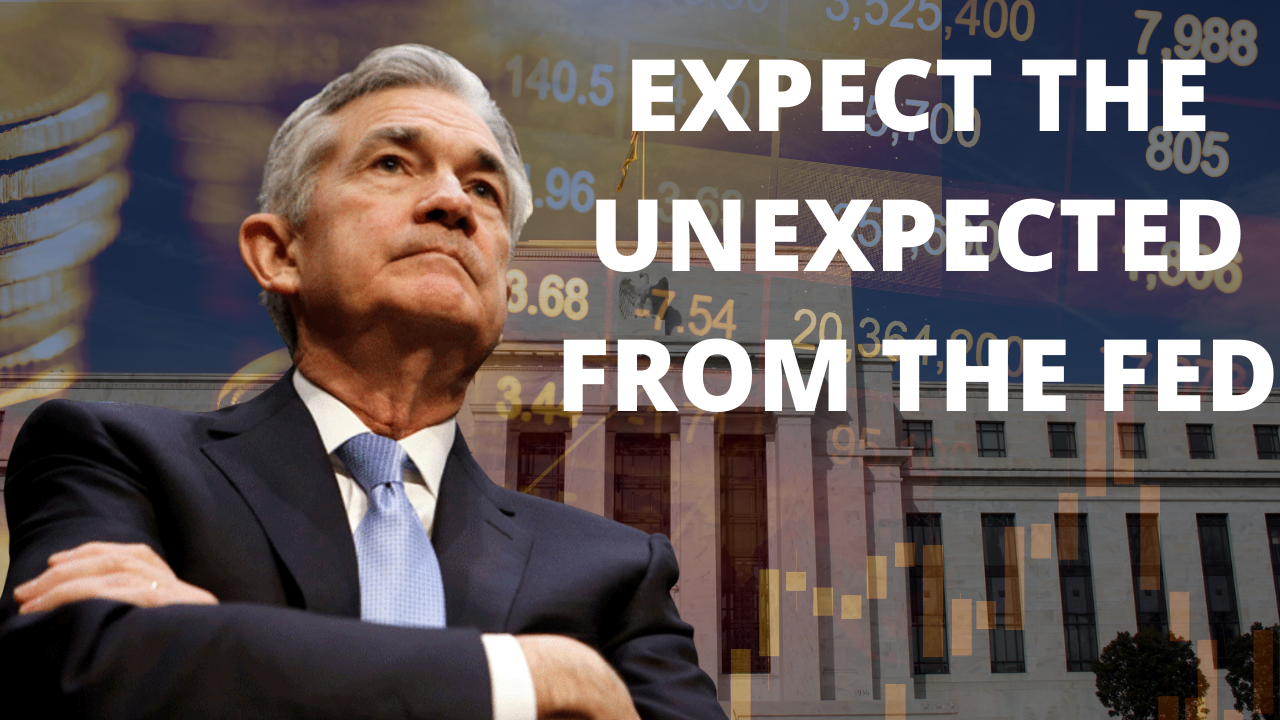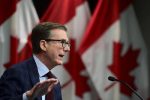Summary:
UK could pay for single market access.
UK’s position still seems fluid.
The Supreme Court will hear the government’s appeal next week.
| Sterling has been lifted to its best since October 6 on the back of comments by UK’s Brexit Minister Davis. In answer to questions in Parliament, Davis acknowledged that access to the EU single market might be secured by the UK paying for it.
He talked about making a contribution to the EU. Last year, the UK paid about GBP13 bln. The EU invested about GBP4.5 bln in the UK, making for a net “contribution” of GBP8.5 bln. The Dutch finance minister Dijsselbloem, who is also the head of the Eurogroup finance ministers, suggested that this could be a fruitful path to explore, but noted that UK access to the single market from outside the EU would not be as easy or as cheap as being inside. Still, this seems to represent a de-escalation of the poisonous rhetoric. Prospects of softer Brexit have generally seen sterling tick higher. Chancellor Hammond also recognizes that compromises from both sides will be necessary for a mutually acceptable arrangement. While this is interesting, and a driver today, the market’s focus is likely to shift away from the potential room for compromise to the Supreme Court. The Supreme Court will hear the UK government’s appeal from the decision of the High Court that gave parliament a greater role that the government’s claim of the royal prerogative. A decision is expected toward the middle of January. If the Supreme Court upholds the High Court decision, Prime Minister May’s invocation of Article 50 by the end of Q1 may be in jeopardy. Both the House of Commons and the House of Lords will weigh-in on the decision. Sentiment to leave the EU in Parliament is not particularly strong. While most discussions have focused on the House of Commons, some contacts warn that the House of Lords, more removed from the popular passions, may balk. If they do, it will slow the process, which means invoking Article 50 may not happen in late in Q2 17 rather than the end of Q1. |
US Dollar- British Pound, December 01(see more posts on British Pound, )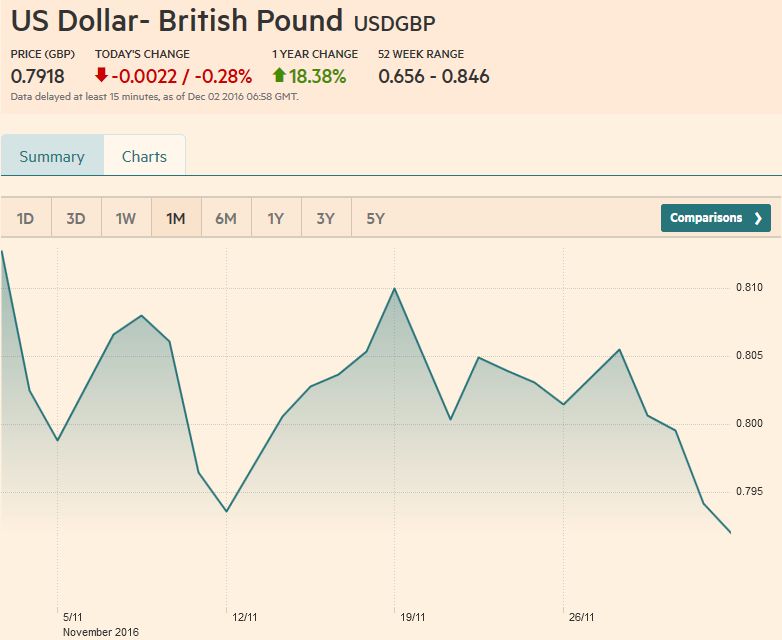 . Source: markets.ft.com - Click to enlarge |
| The position of EU leaders has been the access to the single market in goods and services requires the free movement of people. Earlier this week, Sky News had reported that UK Foreign Secretary Johnson had told at least four EU diplomats that he personally supports free movement, but that that was not the government’s position. Johnson’s office has tried clarifying what he said, but the impression that the UK government still has not hammered out a coherent strategy five months after the referendum is a source of anxiety and confusion.
Since the middle of last month, sterling has been largely in a $1.23-$1.25 range. It has reached an eight-week high near $1.2685 today. It is only the second session since the flash crash on October 7 to trade above $1.2670. It is up 2.5 cents from yesterday’s low, forcing shorts to cover. At the same time, given the US dollar’s inability to extend its three-week rally despite strong economic data, rising interest rates, and widening differentials, some participants prefer to go into the weekend political events in EMU long sterling against the euro rather than dollars. The euro is at its lowest level against sterling today since the first half of September. The next target is GBP0.8300, the lower end of where it has traded since the referendum. In the futures market, speculators have been covering short sterling exposure all month. At the end of October, the speculators had 147.6k gross short sterling contracts. After covering them consistently for the last four weeks, it is down to 128.5k contracts. Both the net and gross short sterling position is the smallest in two months. |
Swiss Franc / UK Pound Sterling FX Cross Rate, December 01(see more posts on GBP/CHF, )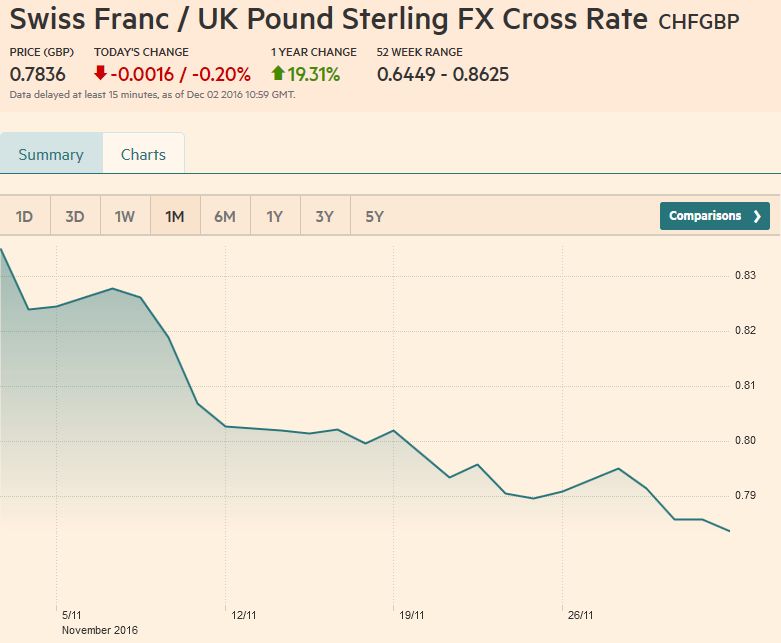 . Source: markets.ft.com - Click to enlarge |
Full story here Are you the author? Previous post See more for Next post
Tags: #GBP,$EUR,Brexit,British Pound,gbp-chf,newslettersent





















